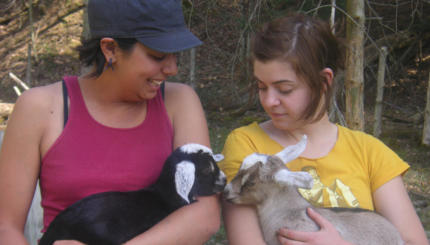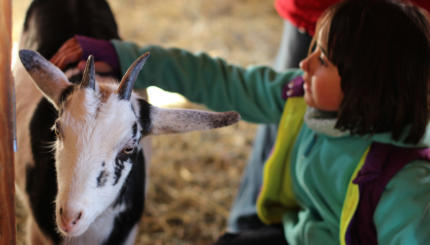Question: I know I need to keep away from bread and leavened food during Passover, but what do I do about my dog, Wailer?
–JoAnne, Washington
Answer: Generally, even pets in Jewish homes are allowed to eat non-kosher food. In fact, the Torah says that some kinds of non-kosher meat should literally be thrown to the dogs (Exodus 22:30). But on Passover Jewish law restricts Jews from owning or at all benefiting from hametz, which means you have to find something kosher for Passover to give to Wailer.
Luckily, you can find dog food made especially for Passover (available at kosherpets.com and at some kosher grocery stores). And in case you were wondering, all pets are allowed to eat rice, beans, and legumes (kitniyot), regardless of your family’s ethnic background. Even Ashkenazi Jews are allowed to own and benefit from kitniyot.
If you have a really hard time finding dog food that doesn’t have hametz in it, consider making your own dog food for the week (or forever, if you’re feeling industrious). You can use boiled chicken, veggies, and starches like potatoes or rice. Just make sure there’s a lot of protein.
It’s a pretty simple process, and could save you money. Try introducing the new food with the current food about a week in advance, and slowly increase the ratio of homemade food. Plus, Wailer might appreciate a nice home-cooked meal.
If you can’t find certified Passover-friendly dog food and can’t make any yourself, there is at least one halachic (Jewish law) ruling by Rabbi Avraham Danzig, an 18th-century rabbinic authority from Vilna, that permits buying regular dog food that doesn’t contain hametz. He uses the principle that people would never eat dog food. However, be careful to read the labels and check that what you buy doesn’t contain any wheat, barley or other grains.
Finally, if none of these options work for you, you can “sell” Wailer to a non-Jewish friend for a week, and the friend can feed Wailer his regular food. But Wailer will have to live with your friend for that whole week. Bummer.
Good luck, chag sameach, and woof woof!
hametz
Pronounced: khah-METZ or KHUH-metz, Origin: Hebrew, bread or any food that has been leavened or contains a leavening agent. Hametz is prohibited on Passover.
kosher
Pronounced: KOH-sher, Origin: Hebrew, adhering to kashrut, the traditional Jewish dietary laws.
Torah
Pronunced: TORE-uh, Origin: Hebrew, the Five Books of Moses.
chag sameach
Pronounced: khahg sah-MAY-akh, Origin: Hebrew, happy holiday. Alternate Spellings: hag sameach, hag sameakh.
kitniyot
Pronounced: kit-nee-YOTE, Origin: Hebrew, meaning “little things,” the term here refers to legumes, corn, rice and other non-hametz foods prohibited for use on Passover by some Ashkenazic rabbis in the medieval period. Many Sephardic Jews (and Conservative Jews) do allow them on Passover.
Ashkenazi
Pronounced: AHSH-ken-AH-zee, Origin: Hebrew, Jews of Central and Eastern European origin.
halachic
Pronounced: huh-LAKH-ic, Origin: Hebrew, according to Jewish law, complying with Jewish law.



